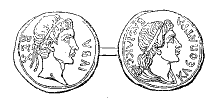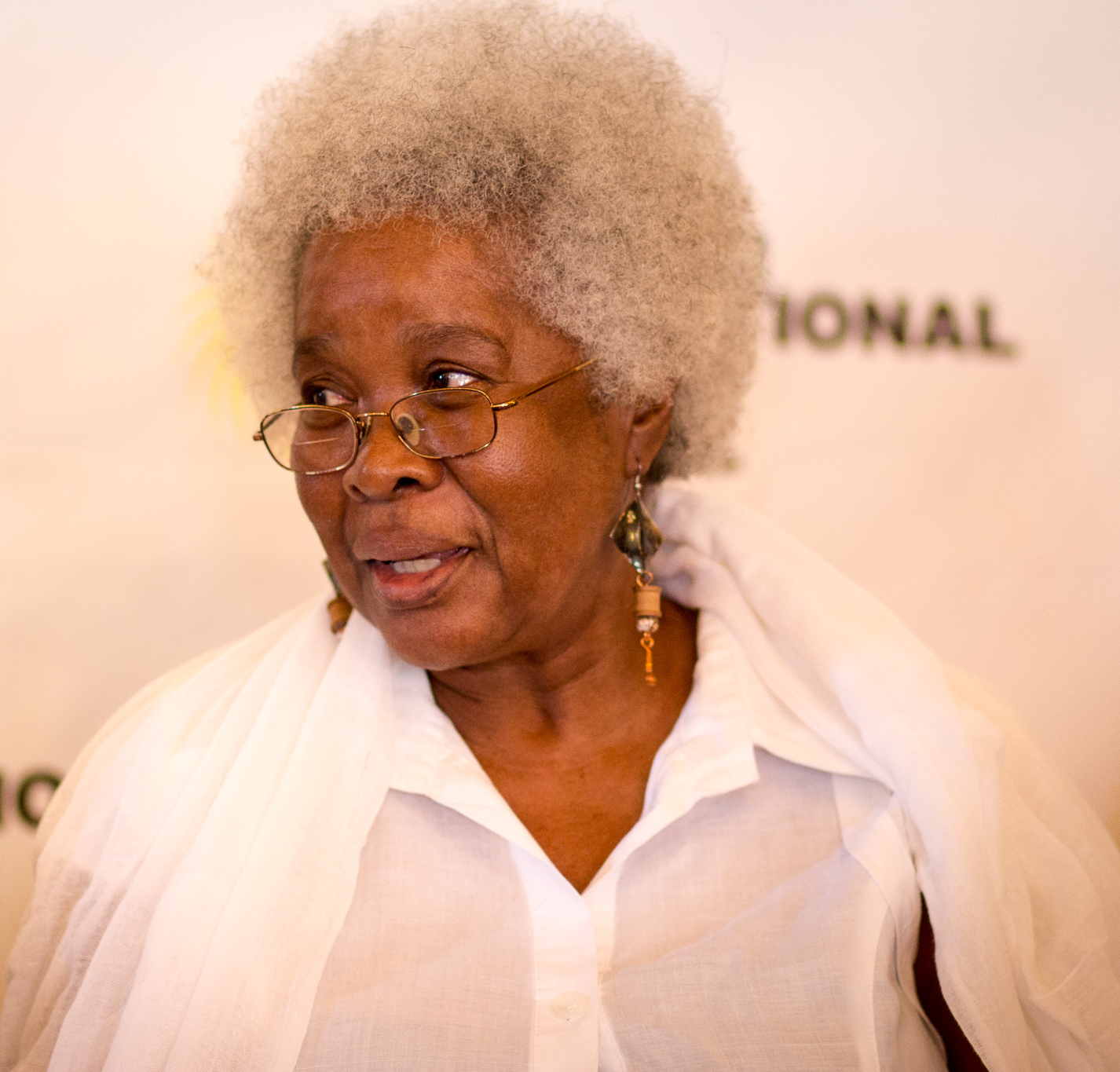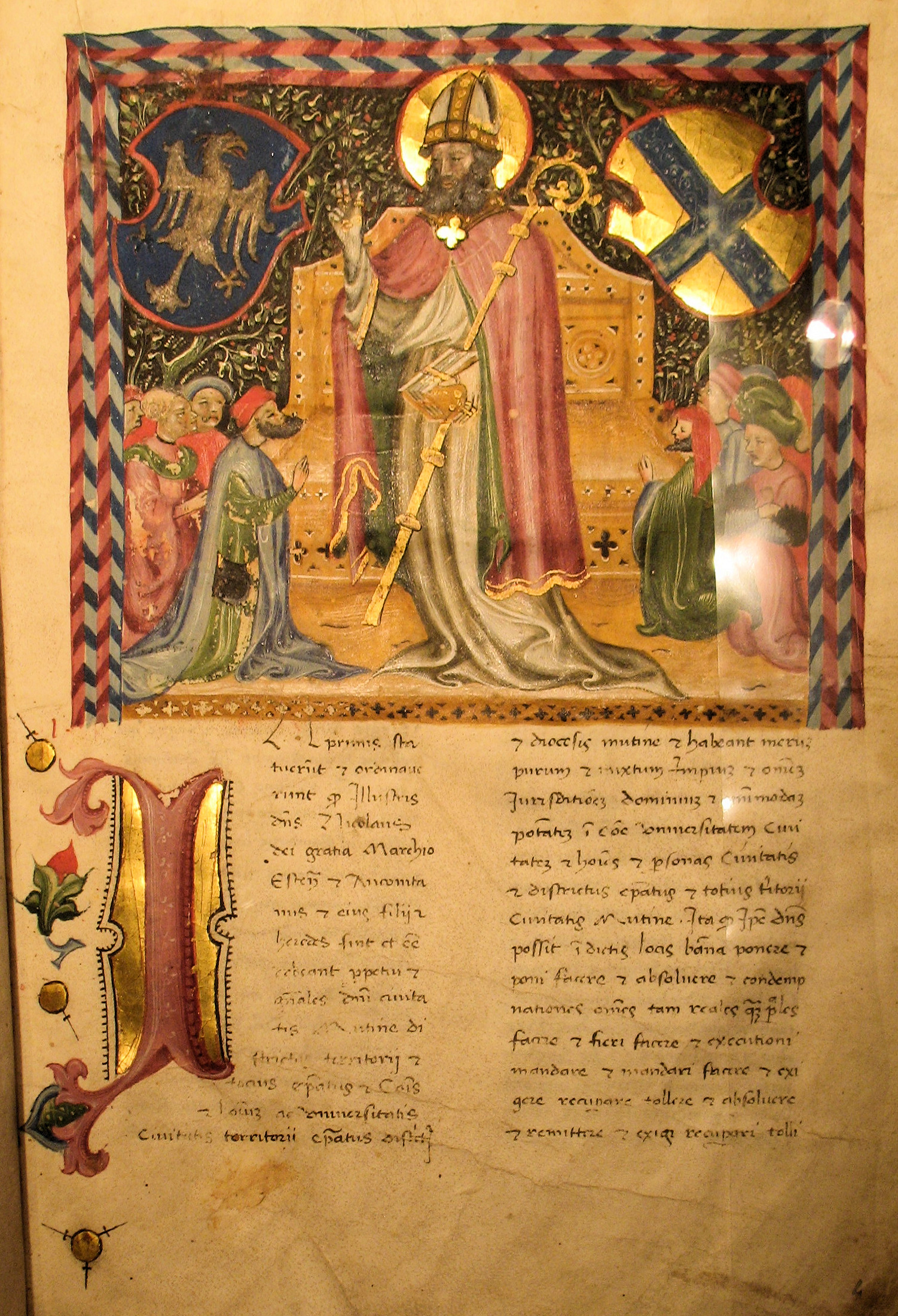|
The Shards Of Heaven
''The Shards of Heaven'' is a 2015 historical fantasy debut novel by Michael Livingston. It chronicles Octavian's war against Mark Antony and Cleopatra, seen from the perspective of the minor historical figures who surround them. Plot Years after the murder of Julius Caesar, his adopted son Octavian has succeeded him as a powerful force in Rome, if only as a senator with a large personal army. Octavian is somewhat threatened by the existence of Caesarion, Caesar's son by the Egyptian queen Cleopatra, who is himself Pharaoh alongside his mother. Octavian's nemesis Mark Antony has left Italy for Egypt, where he has fathered three children with Cleopatra, and his declaration of Caesarion as Caesar's legitimate heir incites war with Rome. Meanwhile, Caesar's other adopted son, Juba, has found the fabled Trident of Poseidon, a magical artifact with unearthly destructive power. He intends to use it—and the other so-called "Shards of Heaven"—to avenge himself on Rome for the death ... [...More Info...] [...Related Items...] OR: [Wikipedia] [Google] [Baidu] |
Michael Livingston
Michael Livingston is a historian, a professor of medieval literature, and a historical fantasy novelist. His 2015 debut novel, '' The Shards of Heaven'', was followed by two sequels. Early life, education and career Originally from Colorado, Livingston has a B.A. in history from Baylor University, an M.A. in medieval studies from Western Michigan University, and both an M.A. and a Ph.D. in English from the University of Rochester. He has been a professor at The Citadel in Charleston, South Carolina since 2006. In his academic life he wrote numerous articles on the world of J.R.R. Tolkien, '' Beowulf'', Chaucer, James Joyce and Robert Jordan. Television Michael Livingston is the co-star on the Discovery Channel TV show '' Contact'', in which he skeptically examines potential evidence for the existence of extraterrestrial life and its impact on Earth. Writing Livingston has published multiple academic works. He said in 2015, "one of the key bits of advice I ever received ... [...More Info...] [...Related Items...] OR: [Wikipedia] [Google] [Baidu] |
Juba II
Juba II or Juba of Mauretania (Latin: ''Gaius Iulius Iuba''; grc, Ἰóβας, Ἰóβα or ;Roller, Duane W. (2003) ''The World of Juba II and Kleopatra Selene'' "Routledge (UK)". pp. 1–3. . c. 48 BC – AD 23) was the son of Juba I and client king of Numidia (30–25 BC) and Mauretania (25 BC – AD 23). Aside from his very successful reign, he was a highly respected scholar and author. His first wife was Cleopatra Selene II, daughter of Queen Cleopatra VII of Ptolemaic Egypt and Roman Triumvir Mark Antony. Life Early life and education Juba II was a Berber prince from Numidia. He was the only child and heir of King Juba I of Numidia; his mother's identity is unknown. In 46 BC, his father was defeated by Julius Caesar (in Thapsus, North Africa), and in 40 BC Numidia became a Roman province. His father had been an ally of the Roman General Pompey. Several modern scholars cite his age at Caesar's triumph in 46 BC as four or six giving rise to the typically cited birth year ran ... [...More Info...] [...Related Items...] OR: [Wikipedia] [Google] [Baidu] |
SF Signal
''SF Signal'' was a science fiction blog and fanzine published from 2003 to 2016. The site was launched by John DeNardo and JP Frantz and focused on writings, events, and other topics focusing on the genres of science fiction, fantasy, and other related genres. It hosted three podcasts, one of which won the 2014 Hugo Award for Best Fancast. The site itself won two Hugo Awards for Best Fanzine, 2012 and 2013. History The website was launched in 2003 by John DeNardo and JP Frantz after they noticed a lack of blogs focusing on science fiction. They decided to launch a blog where they could discuss science fiction and related genre writings, events and ideas that were interesting to them. As the website's popularity grew, they began to incorporate more original content and hired additional staff members as well as brought in new contributors. ''SF Signal'' published three podcasts: ''SF Crossing the Gulf'', ''The Three Hoarsemen'', and ''The SF Signal Podcast''. In 2012 ''SF Signa ... [...More Info...] [...Related Items...] OR: [Wikipedia] [Google] [Baidu] |
Medieval Literature
Medieval literature is a broad subject, encompassing essentially all written works available in Europe and beyond during the Middle Ages (that is, the one thousand years from the fall of the Western Roman Empire ca. AD 500 to the beginning of the Renaissance in the 14th, 15th or 16th century, depending on country). The literature of this time was composed of religious writings as well as secular works. Just as in modern literature, it is a complex and rich field of study, from the utterly sacred to the exuberantly profane, touching all points in-between. Works of literature are often grouped by place of origin, language, and genre. Languages Outside of Europe, medieval literature was written in Ethiopic, Syriac, Coptic, Japanese, Chinese, and Arabic, among many other languages. In Western Europe, Latin was the common language for medieval writing, since Latin was the language of the Roman Catholic Church, which dominated Western and Central Europe, and since the Church was v ... [...More Info...] [...Related Items...] OR: [Wikipedia] [Google] [Baidu] |
Library Of Alexandria
The Great Library of Alexandria in Alexandria, Egypt, was one of the largest and most significant libraries of the ancient world. The Library was part of a larger research institution called the Mouseion, which was dedicated to the Muses, the nine goddesses of the arts.Murray, S. A., (2009). The library: An illustrated history. New York: Skyhorse Publishing, p.17 The idea of a universal library in Alexandria may have been proposed by Demetrius of Phalerum, an exiled Athenian statesman living in Alexandria, to Ptolemy I Soter, who may have established plans for the Library, but the Library itself was probably not built until the reign of his son Ptolemy II Philadelphus. The Library quickly acquired many papyrus scrolls, owing largely to the Ptolemaic kings' aggressive and well-funded policies for procuring texts. It is unknown precisely how many such scrolls were housed at any given time, but estimates range from 40,000 to 400,000 at its height. Alexandria came to be regarde ... [...More Info...] [...Related Items...] OR: [Wikipedia] [Google] [Baidu] |
Didymus Chalcenterus
Didymus Chalcenterus (Latin; Greek: , ''Dídymos Chalkéderos'', "Didymus Bronze-Guts"; c. 63 BC – c. AD 10), was an Ancient Greek scholar and grammarian who flourished in the time of Cicero and Augustus. Life The epithet "Bronze-Guts" came from his indefatigable industry: he was said to have written so many books that he was unable to recollect what he had written in earlier ones, and so often contradicted himself. Athenaeus (4.139c) records that he wrote 3500 treatises, while Seneca gives the figure of 4000. As a result, he acquired the additional nickname (, ''vivlioláthas''), meaning "Book-Forgetting" or "Book-forgetter", a term coined by Demetrius of Troezen. He lived and taught in Alexandria and Rome, where he became the friend of Varro. He is chiefly important as having introduced Alexandrian learning to the Romans. Works He was a follower of the school of Aristarchus, and wrote a treatise on Aristarchus' edition of Homer entitled ''On Aristarchus' recension'' ( ' ... [...More Info...] [...Related Items...] OR: [Wikipedia] [Google] [Baidu] |
Centurion
A centurion (; la, centurio , . la, centuriones, label=none; grc-gre, κεντυρίων, kentyríōn, or ) was a position in the Roman army during classical antiquity, nominally the commander of a century (), a military unit of around 80 legionaries. In a Roman legion, centuries were grouped into cohorts and commanded by their senior-most centurion. The prestigious first cohort was led by the ''primus pilus'', the most senior centurion in the legion and its fourth-in-command who was next in line for promotion to Praefectus Castrorum, and the primi ordines who were the centurions of the first cohort. A centurion's symbol of office was the vine staff, with which they disciplined even Roman citizens, who were otherwise legally protected from corporal punishment by the Porcian Laws. Centurions also served in the Roman navy. After the 107 BC Marian reforms of Gaius Marius, centurions were professional officers. In Late Antiquity and the Middle Ages, the Byzantine army's cen ... [...More Info...] [...Related Items...] OR: [Wikipedia] [Google] [Baidu] |
Titus Pullo
Lucius Vorenus and Titus Pullo were two Roman centurions mentioned in the personal writings of Julius Caesar. Although it is sometimes stated they were members of the 11th Legion (Legio XI Claudia), in fact Caesar never states the number of the legion concerned, giving only (in the reference cited below) the words ''in ea legione'', 'in that legion'. The legion concerned is never specified and therefore are several possibilities, for example Legio IX Hispana. All that we learn is that the legion in which they served under Caesar was one commanded at the time by Quintus Cicero. Known life Vorenus and Pullo appear in Caesar's ''Commentarii de Bello Gallico,'' Book 5, Chapter 44. The episode describes the two as centurions, approaching the first ranks, who shared a bitter personal rivalry, and takes place in 54 BC when the Nervii attacked the legion under Quintus Cicero in their winter quarters in Nervian territory. In an effort to outdo Vorenus, Pullo charged out of the fortified ... [...More Info...] [...Related Items...] OR: [Wikipedia] [Google] [Baidu] |
Lucius Vorenus
Lucius Vorenus and Titus Pullo were two Roman centurions mentioned in the personal writings of Julius Caesar. Although it is sometimes stated they were members of the 11th Legion (Legio XI Claudia), in fact Caesar never states the number of the legion concerned, giving only (in the reference cited below) the words ''in ea legione'', 'in that legion'. The legion concerned is never specified and therefore are several possibilities, for example Legio IX Hispana. All that we learn is that the legion in which they served under Caesar was one commanded at the time by Quintus Cicero. Known life Vorenus and Pullo appear in Caesar's ''Commentarii de Bello Gallico,'' Book 5, Chapter 44. The episode describes the two as centurions, approaching the first ranks, who shared a bitter personal rivalry, and takes place in 54 BC when the Nervii attacked the legion under Quintus Cicero in their winter quarters in Nervian territory. In an effort to outdo Vorenus, Pullo charged out of the fortifi ... [...More Info...] [...Related Items...] OR: [Wikipedia] [Google] [Baidu] |
Ptolemy Philadelphus (son Of Cleopatra)
Ptolemy XVI Philadelphus Antonius ( el, Πτολεμαῖος ὁ Φιλάδελφος, "Ptolemy the brother-loving", August/September 36 BC – 29 BC) was a Ptolemaic prince and was the youngest and fourth child of Greek Ptolemaic Queen Cleopatra VII of Egypt, and her third with Roman Triumvir Mark Antony. Biography Early life and reign Ptolemy XVI Philadelphos Antonius was of Greek and Roman heritage. His father Mark Antony summoned Cleopatra to a summit near Antioch, Syria (now a part of modern Turkey) in a place Plutarch locates as being situated between Beirut and Sidon, called Light, an unwalled village. If Plutarch is to be believed, Philadelphos was conceived during this meeting between roughly November and December 37 BC. William Woodthorpe Tarn believed his birth (presumably in Alexandria, Egypt) was between August–September 36 BC. Ptolemy XVI was named after the original Ptolemy II Philadelphus (the second Pharaoh of the Ptolemaic dynasty) and Cleopatra's intention was ... [...More Info...] [...Related Items...] OR: [Wikipedia] [Google] [Baidu] |
Alexander Helios
Alexander Helios ( el, Ἀλέξανδρος Ἥλιος; late 40 BC – unknown, but possibly between 29 and 25 BC) was a Ptolemaic prince and was a son of Pharaoh Cleopatra VII of the Ptolemaic dynasty and Roman triumvir Mark Antony. Alexander's fraternal twin sister was Cleopatra Selene II. Cleopatra named her son after Alexander the Great. His second name in Ancient Greek means "Sun"; this was the counterpart of his twin sister's second name Selene (Σελήνη), meaning "Moon". Life Alexander Helios was born and educated in Alexandria. He was the second of Cleopatra's three sons, Caesarion being the oldest. In late 34 BC, at the Donations of Alexandria, he was given the title of "King of Kings". His parents also made him ruler of Armenia, Media, Parthia and any countries yet to be discovered between the Euphrates and Indus Rivers, despite the fact that most of this territory stood outside of their control at that time. These areas were, in fact, already ruled by Artaxias II ... [...More Info...] [...Related Items...] OR: [Wikipedia] [Google] [Baidu] |
Cleopatra Selene II
Cleopatra Selene II (Greek: Κλεοπάτρα Σελήνη; summer 40 BC – BC; the numeration is modern) was a Ptolemaic princess, Queen of Numidia (briefly in 25 BC) and Mauretania (25 BC – 5 BC) and Queen of Cyrenaica (34 BC – 30 BC). She was an important royal woman in the early Augustan age. Cleopatra Selene was the only daughter of Greek Ptolemaic Queen Cleopatra VII of Egypt and Roman Triumvir Mark Antony. In the Donations of Antioch and of Alexandria, she was made queen of Cyrenaica and Libya. After Antony and Cleopatra's defeat at Actium and their suicides in Egypt in 30 BC, Selene and her brothers were brought to Rome and placed in the household of Octavian's sister, Octavia the Younger, a former wife of her father. Selene eventually married Juba II of Numidia and Mauretania. She had great influence in Mauretania's government decisions, especially regarding trade and construction projects. During their reign, the country became extremely wealthy. The couple ... [...More Info...] [...Related Items...] OR: [Wikipedia] [Google] [Baidu] |





